
The Barons of the Exchequer, or barones scaccarii, were the judges of the English court known as the Exchequer of Pleas. The Barons consisted of a Chief Baron of the Exchequer and several puisne (inferior) barons. When Robert Shute was appointed second baron in June 1579 the patent declared "he shall be reputed and be of the same order, rank, estimation, dignity and pre-eminence to all intents and purposes as any puisne judge of either of the two other courts." The rise of commercial trade in Elizabethan England occasioned fraudulent application of the Quo minus writ. More taxation demanded staff at the exchequer to sift an increase in the case load causing more widespread litigation cases to come to the court. From the 1580s onwards the Barons of Exchequer were no longer held in such low regard, and more likely to be Serjeants-at-law before qualification. The Inns of Courts began to exclude solicitors, and held posts for judges and barons open equally to barristers. In 1591, Regulations reflected a case in which the Lord Keeper Egerton banned solicitors from seeking cases in the Exchequer.
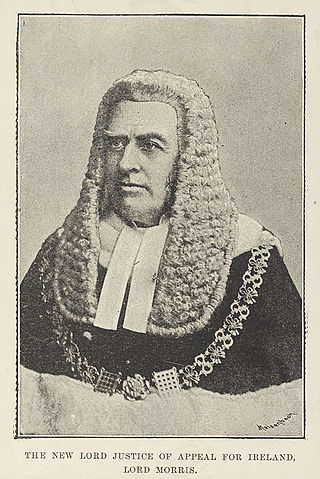
The Attorney-General for Ireland was an Irish and then United Kingdom government office-holder. He was senior in rank to the Solicitor-General for Ireland: both advised the Crown on Irish legal matters. With the establishment of the Irish Free State in 1922, the duties of the Attorney-General and Solicitor-General for Ireland were taken over by the Attorney General of Ireland. The office of Solicitor-General for Ireland was abolished for reasons of economy. This led to repeated complaints from the first Attorney General of Ireland, Hugh Kennedy, about the "immense volume of work" which he was now forced to deal with single-handedly.

James Parke, 1st Baron Wensleydale PC was a British barrister and judge. After an education at The King's School, Macclesfield and Trinity College, Cambridge he studied under a special pleader, before being called to the Bar by the Inner Temple in 1813. Although not a particularly distinguished barrister, he was appointed to the Court of King's Bench on 28 November 1828, made a Privy Counsellor in 1833 and, a year later, a Baron of the Exchequer. He resigned his post in 1855, angered by the passing of the Common Law Procedure Acts, but was recalled by the government, who gave him a peerage as Baron Wensleydale of Walton to allow him to undertake the Judicial functions of the House of Lords, a role he fulfilled until his death on 25 February 1868.

Sir John Beverley Robinson, 1st Baronet, was a lawyer, judge and political figure in Upper Canada. He was considered the leader of the Family Compact, a group of families which effectively controlled the early government of Upper Canada.

Sir William Flood Webb was a judge of the Supreme Court of Queensland and the High Court of Australia. He was President of the International Military Tribunal for the Far East, common known as the Tokyo trial, after the end of World War II.
The Chief Baron of the Exchequer was the first "baron" of the English Exchequer of Pleas. "In the absence of both the Treasurer of the Exchequer or First Lord of the Treasury, and the Chancellor of the Exchequer, it was he who presided in the equity court and answered the bar i.e. spoke for the court." Practically speaking, he held the most important office of the Exchequer of Pleas.

Sir John Pratt (1657–1725) was an English judge and politician. He was Lord Chief Justice of England from 15 May 1718 until 2 March 1725. He was appointed as an interim Chancellor of the Exchequer on 2 February 1721 until 3 April 1721.

Sir Hector Horace Hearne was an English barrister and judge.
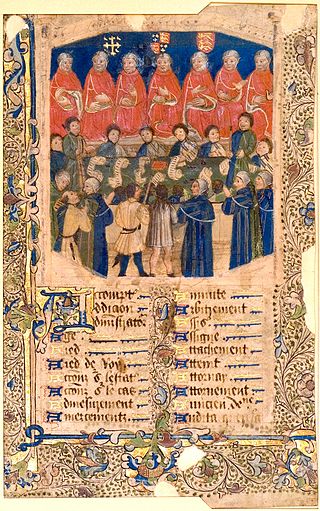
The Court of Common Pleas, or Common Bench, was a common law court in the English legal system that covered "common pleas"; actions between subject and subject, which did not concern the king. Created in the late 12th to early 13th century after splitting from the Exchequer of Pleas, the Common Pleas served as one of the central English courts for around 600 years. Authorised by Magna Carta to sit in a fixed location, the Common Pleas sat in Westminster Hall for its entire existence, joined by the Exchequer of Pleas and Court of King's Bench.
Sir Andrew Stuart, was a Quebec lawyer, judge, seigneur and businessman.
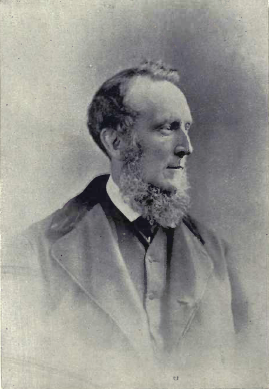
Sir John Hawkins Hagarty was a Canadian lawyer, teacher, and judge.
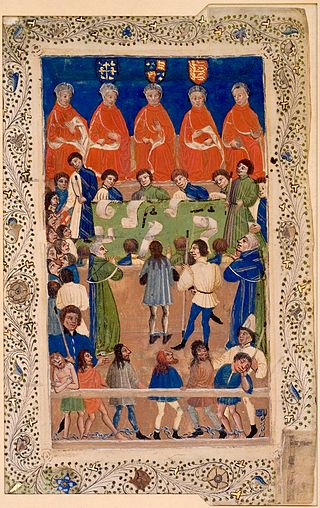
The Court of King's Bench, formally known as The Court of the King Before the King Himself, was a court of common law in the English legal system. Created in the late 12th to early 13th century from the curia regis, the King's Bench initially followed the monarch on his travels. The King's Bench finally joined the Court of Common Pleas and Exchequer of Pleas in Westminster Hall in 1318, making its last travels in 1421. The King's Bench was merged into the High Court of Justice by the Supreme Court of Judicature Act 1873, after which point the King's Bench was a division within the High Court. The King's Bench was staffed by one Chief Justice and usually three Puisne Justices.

Sir Thomas Reeve was a British justice.
William Scott was an Irish lawyer and judge.
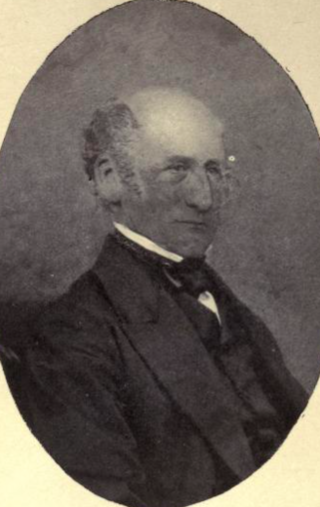
William Blowers Bliss was a lawyer, judge and political figure in Nova Scotia. He represented Hants County in the Nova Scotia House of Assembly from 1830 to 1834.
Sir Edward Vaughan Williams was a British judge.
Sir Richard Shelton was an English lawyer and politician who served as Solicitor General between 1625 and 1634.
Sir William Ogle Carr was the ninth Chief Justice of Ceylon and eighth King's Advocate of Ceylon. He was appointed on 17 April 1854, succeeding Anthony Oliphant, and was Chief Justice until 1856. He was succeeded by William Carpenter Rowe.
Norfolk Island convict mutinies were a series of armed uprisings by convicts on the penal colony of Norfolk Island. All were unsuccessful.

Joseph Henry Hood was a puisne judge of the Supreme Court of Victoria from 1890 to 1921.













